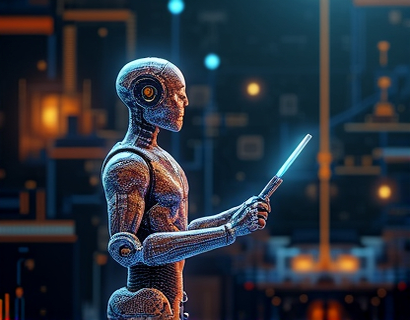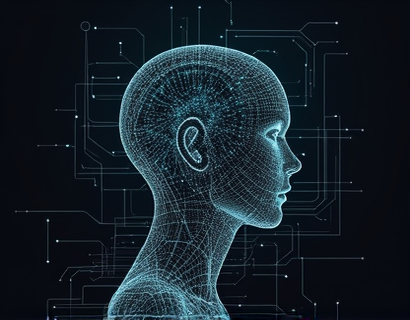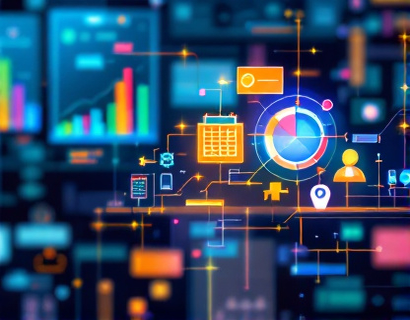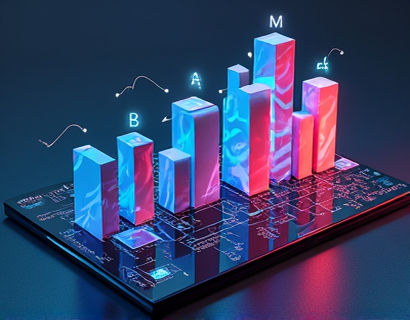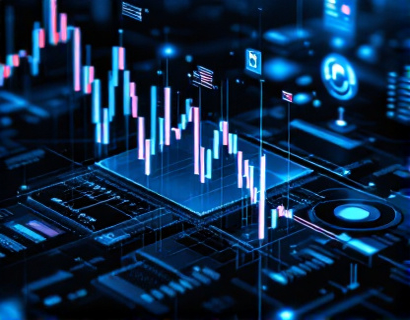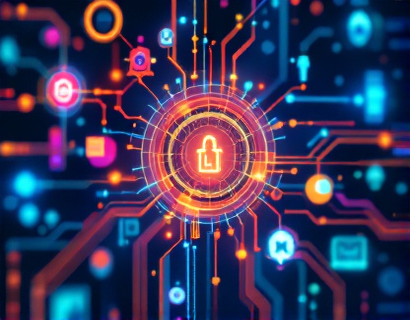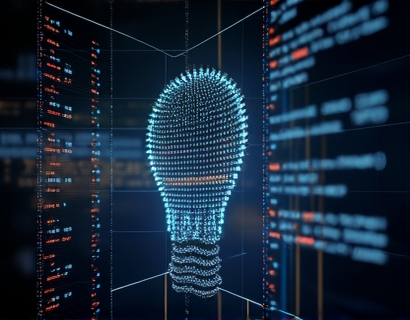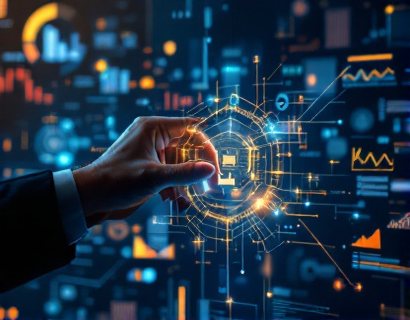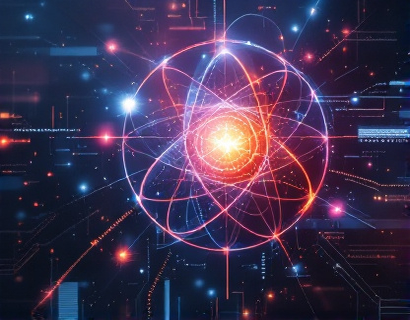AI and Crypto Synergy: Transforming Digital Experiences with Advanced Blockchain Solutions
The integration of Artificial Intelligence (AI) and blockchain technology is revolutionizing the digital landscape, creating a synergy that promises to unlock unprecedented levels of efficiency, security, and innovation. This article delves into the powerful combination of blockchain and machine learning, exploring how these technologies can drive growth, enhance security, and foster innovation, providing a competitive edge in the rapidly evolving digital market.
The convergence of AI and blockchain is not merely a technological trend but a fundamental shift in how we approach digital transactions, data management, and service delivery. By leveraging the strengths of both technologies, businesses and developers can create more robust, secure, and intelligent systems. This synergy is particularly significant in the realm of blockchain, where the inherent transparency and immutability of the ledger can be augmented by AI's ability to process and analyze vast amounts of data.
Enhancing Efficiency Through AI and Blockchain
One of the most immediate benefits of combining AI and blockchain is the enhancement of operational efficiency. Traditional systems often suffer from bottlenecks and inefficiencies due to manual processes and centralized control. AI can automate these processes, reducing the need for human intervention and increasing the speed and accuracy of transactions. For instance, smart contracts on a blockchain can be programmed with AI algorithms to execute complex conditions automatically, ensuring that all parties adhere to the agreed terms without the need for intermediaries.
In supply chain management, this synergy can lead to significant improvements. AI can predict demand, optimize inventory levels, and identify potential disruptions, while blockchain ensures that every step of the process is recorded transparently and immutably. This combination not only streamlines operations but also builds trust among all stakeholders, as every transaction is verifiable and traceable.
Boosting Security with AI-Powered Blockchain Solutions
Security is a paramount concern in the digital world, and the integration of AI with blockchain offers robust solutions to mitigate risks. Traditional blockchain systems, while secure, are not immune to all types of attacks. AI can enhance security by detecting and responding to anomalies in real-time. Machine learning algorithms can analyze patterns in transaction data to identify suspicious activities, such as fraudulent transactions or unauthorized access attempts.
Moreover, AI can help in the development of more secure blockchain protocols. By simulating various attack scenarios, AI can help identify vulnerabilities and suggest improvements to the system. This proactive approach to security ensures that blockchain networks remain resilient against evolving threats. For example, AI-driven systems can continuously monitor the network for unusual patterns and automatically trigger security protocols to mitigate potential risks.
Fostering Innovation Through AI and Blockchain
The combination of AI and blockchain is a catalyst for innovation, opening up new possibilities in various industries. In finance, decentralized finance (DeFi) platforms leverage AI to create more sophisticated and user-friendly financial services. AI can analyze market trends, predict price movements, and optimize trading strategies, all while ensuring that transactions are secure and transparent on the blockchain.
In the healthcare sector, AI and blockchain can revolutionize patient data management. AI can process and analyze vast amounts of medical data to provide personalized treatment recommendations, while blockchain ensures that patient data is securely stored and shared only with authorized parties. This not only improves patient care but also enhances data privacy and compliance with regulations.
In the realm of Internet of Things (IoT), AI and blockchain can work together to create smart, autonomous systems. AI can process data from IoT devices to make real-time decisions, while blockchain ensures that the data is secure and tamper-proof. This synergy is particularly valuable in industries like smart cities, where numerous devices need to communicate and share data seamlessly and securely.
Case Studies: Real-World Applications of AI and Blockchain Synergy
Several companies and projects are already leveraging the synergy between AI and blockchain to drive innovation and efficiency. One notable example is Filecoin, a decentralized storage network that uses AI to optimize data storage and retrieval. Filecoin's protocol allows users to rent out their unused storage space, and AI algorithms ensure that data is stored efficiently and accessed quickly. This not only reduces storage costs but also enhances data availability and reliability.
Another example is Chainlink, a decentralized oracle network that uses AI to provide accurate and reliable data to smart contracts. Chainlink's solution addresses one of the key challenges of blockchain technology: the need for trustworthy external data sources. By integrating AI-driven data validation, Chainlink ensures that smart contracts have access to accurate and up-to-date information, enabling more complex and reliable decentralized applications.
Challenges and Considerations
While the potential benefits of AI and blockchain synergy are substantial, there are also challenges and considerations that need to be addressed. One of the primary challenges is the technical complexity involved in integrating these technologies. Developers must have a deep understanding of both AI and blockchain to create effective solutions. Additionally, the computational resources required for AI algorithms can be significant, which may impact the scalability and cost-effectiveness of blockchain applications.
Regulatory considerations are another important factor. As AI and blockchain continue to evolve, regulatory frameworks are still catching up. Ensuring compliance with existing laws and regulations while innovating in this space requires careful planning and collaboration with legal experts. Moreover, the ethical implications of AI, such as bias and transparency, must be carefully managed to build trust and acceptance among users.
Future Outlook: The Next Frontier of AI and Blockchain
The future of AI and blockchain synergy is promising, with numerous opportunities for further innovation and growth. As technology advances, we can expect to see more sophisticated AI algorithms that can better leverage the unique properties of blockchain. For instance, the development of quantum-resistant blockchain protocols, enhanced by AI, could pave the way for a new era of secure and resilient digital systems.
Furthermore, the rise of edge computing, combined with AI and blockchain, will enable more decentralized and efficient data processing. Edge devices can perform AI-driven computations locally, reducing latency and bandwidth usage, while blockchain ensures that data is secure and verifiable. This convergence will be particularly transformative in industries like autonomous vehicles, remote healthcare, and smart cities, where real-time data processing and security are critical.
In conclusion, the synergy between AI and blockchain is a powerful force that is reshaping the digital landscape. By enhancing efficiency, security, and innovation, this combination offers a competitive edge in the rapidly evolving digital market. As more organizations recognize the potential of this synergy, we can expect to see a wave of new applications and services that transform the way we interact with digital technologies.








